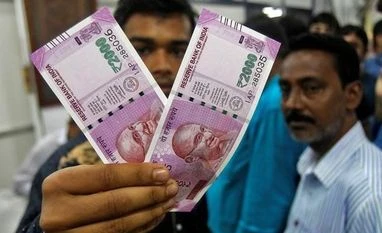Domestic institutional investors (DIIs) have emerged as counterbalance to foreign money outflow over the past two years. Due to robust inflows in equity segments of mutual funds and life insurance companies, DIIs’ contribution to shareholding is nearly 60% of foreign investors’, from 25% two years ago.
According to Central Depository Services Limited (CDSL), total assets under custody of DIIs, including banks, were Rs 13.16 lakh crore as on September, against foreign portfolio investments (FPIs)'s Rs 22 lakh crore. This change in investor mix has taken place in the past two years. Back in September 2014, DIIs were only 25% the size of FPIs in terms of shareholding.
"This is a positive development for Indian markets as we now have a stable counterbalance to FPI outflows. Till now, markets have been heavily dependent on foreign funds and now that dependence will be gone. Foreign funds operate on a different mandate compared to domestic institutions and based on their mandate they could liquidate their exposure to India even if there is nothing fundamentally wrong with the market. Hence, this is a much-needed counterbalance for the Indian markets," said Pranav Haldea, managing director, Prime Database.
In the past two years, mutual funds have grown significantly as investors preferred indirect exposure to markets due to volatility. During FY16, equity and related schemes of mutual funds received net inflows (or inflows minus outgo) of Rs 74,000 crore, data compiled from Association of Mutual Funds in India showed. On the other hand, FPIs had net sold equities worth Rs 14,172 during the same period.
Insurance players say unit-linked insurance plans (Ulips) have become quite popular over the past few years among retail (small) investors as a lot of Ulips have outperformed benchmark indices. According to data on Morningstar website, the average one-year return on large-cap Ulip funds was 7.86% while that on small-cap and mid-cap funds was 18.06%. On the other hand, benchmark Sensex has yielded returns of 0.4% during the calendar year so far.
Also Read
In the past six months, numerous global funds have reduced their weight on India in favour of other emerging markets including South Korea and Taiwan.
"Among emerging markets in Asia, India has now slipped to fourth position, a level last seen in February 2012. In terms of absolute exposure, funds continued to reduce their holdings of Indian equities, though India still remained the consensus overweight trade in the region," said Herald van der Linde, head of equity strategy for Asia-Pacific, HSBC.
)